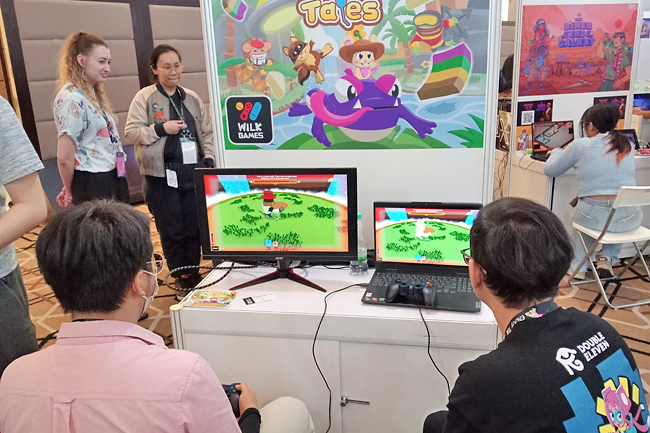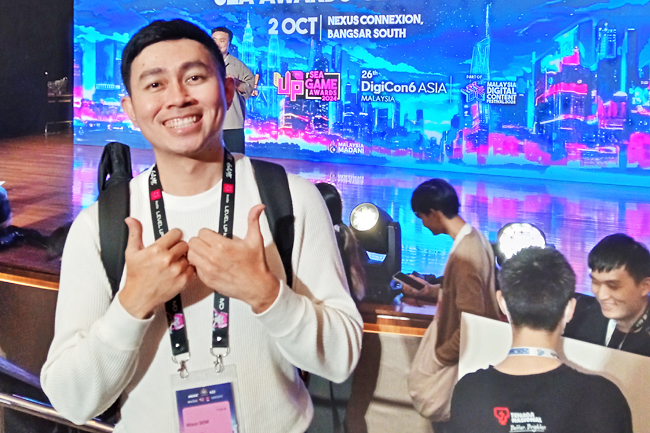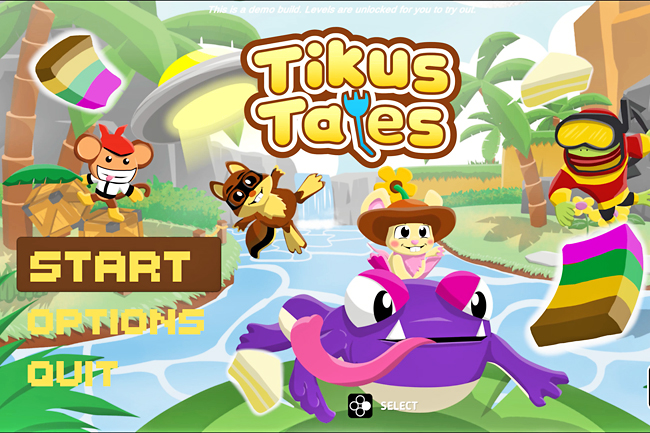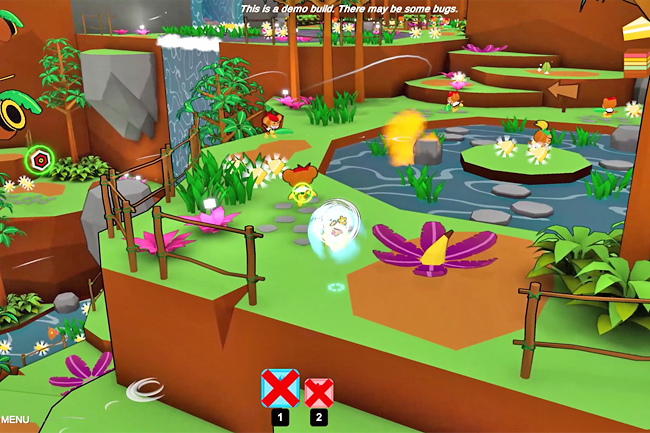In a small but growing community, game development in Brunei is beginning to find its footing.
Among them is Wilson Siow, founder of WilKGames, an independent game development venture he established in 2020.
His journey, however, began long before that.
His journey in game development began in 2017 and at the time, he was transitioning from more than a decade-long career as a telecommunications engineer.
Burnt out from repetitive work and uninspired by senior roles filled with meetings and presentations, Siow sought a new creative outlet and game development became that spark.
Inspired by the simplicity of Flappy Bird, a game created by a solo developer, Siow realised that an individual could craft something impactful without a major studio’s backing.
“Gaming has always been a big part of my life,” he said.
“I grew up with the Sega Genesis and Nintendo consoles. Even during my working days, I played games like World of Warcraft and MapleStory. Transitioning into game development felt like a natural path for me.”
CHALLENGES OF A SOLO GAME DEVELOPER
Although the divergent path seemed destined, for solo developers like Siow, the journey comes with its fair share of challenges.
“Game development isn’t a sustainable career path in Brunei yet,” he shared.
As a result, Siow must balance working on his game with taking on projects that help fund his development ventures.




His early steps in game creation revolved around mobile titles. Between 2017 and 2020, he published five games on the Android Play Store, treating these projects as stepping stones.
“I didn’t make any money from them. My first games were more like learning projects to understand the basics – like how to make objects move. I do everything myself, from the art to the programming,” he explained.
While some developers prefer genres like first-person shooters or horror games, Siow focuses mainly on action platformers that are kid-friendly and fun for all ages.
“Many people have commented that my games remind them of those childhood favourites, which is intentional because they’re my biggest inspiration,” he said.
His work targets a nostalgic audience, those who grew up playing classic platformers, and he has stayed true to this aesthetic. Time management also presents a significant hurdle for game developers, as they must decide whether to create assets themselves or purchase pre-made ones, constantly weighing the time spent crafting every asset against the speed gained from buying them.
“Being a solo developer means doing everything yourself – art, programming, and everything in between. It’s always a trade-off between time and money,” he explained.
Despite these challenges, Siow remains optimistic. Tikus Tales, his current project, marks his first venture into PC games and has already garnered attention.
The game was nominated and made it to the Top 40 for the Level Up SEA Game Awards at the Malaysia Digital Content Festival this year, a milestone that earned him a sponsored trip to Kuala Lumpur, courtesy of the Brunei Innovation Lab (BIL).
“The support from BIL has been invaluable,” he shared. “They’ve invited us to workshops, helped us upskill, and provided opportunities to teach others about game development.”
CULTIVATING A COMMUNITY
When Siow started in 2017, the game development scene in Brunei was nearly non-existent. “I didn’t know anyone else making games,” he recalled.
That changed in 2018 when he met members of another local game company. Through online platforms like Reddit, he connected with more enthusiasts and helped establish the Brunei Game Developers Community in 2019.
“We started small, just five or six of us,” Siow said.
Today however, the community boasts over 100 members, ranging from 16-year-old students to working professionals in their late 30s.
While only a small number are actively engaged, the group’s diversity reflects the untapped potential within Brunei.
“Every bit of involvement matters,” he emphasised. “It’s about building awareness and encouraging more people to explore this industry.”
THE FUTURE OF GAME DEVELOPMENT IN BRUNEI
Siow believed that Brunei’s game development scene holds immense potential, though he recognises that the road ahead will be challenging.
“Regionally, some of our neighbours are ahead of us, but even in Southeast Asia, the game development scene is still relatively young,” he explained. “In Brunei, we’re at an even earlier stage.”
For local developers to thrive, he emphasised the importance of focusing on creating quality games that can showcase their talent on a global stage.
“We need stronger portfolios,” he said. “Right now, it’s less about making money and more about proving that we can create something extraordinary.
“It’s still too early to determine what’s needed. Our focus should be on producing high-quality games.”
Only once the local game development community has found its footing should the Sultanate consider implementing policies and infrastructure to support the industry’s growth.
For now, however, in addition to strengthening local capacity, the community should be encouraged to continue their projects, with a focus on establishing more consistent support systems, such as events and showcases, to keep the momentum going. For those considering a career in game development, Siow believes that there has never been a better time to dive in.
“Just dive in. The tools are free, tutorials are everywhere, and the community is here to support you. If you have questions, reach out to local developers. We’re always happy to help new talent.” – Wardi Wasil


